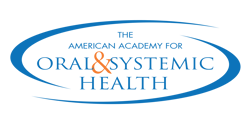Your Mouth: The Gateway to Your Body
Wellness is now the benchmark for healthcare in the modern era. It is center stage for reducing costs in any current discussion for healthcare reform, and the household budget. The reason is self-evident: wellness costs less than disease.
A major threat to health is “systemic inflammation” – something that is fast becoming the new target for health conscious people and forward thinking health professionals. Many are surprised to learn that this includes the mouth, the care of which represents one of the simplest and lowest cost methods for lowering and controlling both inflammation itself and its related healthcare costs.
What is inflammation?
Inflammation associated with an athletic injury or trauma (redness, swelling, warmth) is a common and well understood experience. However, internal or “systemic” inflammation is less well recognized or understood by many people. It is generally silent and often painless, and is seldom the focus of traditional medical or dental evaluations – until it raises its ugly head by way of heart attack, stroke, Alzheimer’s, diabetes or gum disease, to name a few.
Many conditions contribute to systemic inflammation including poor diet, inactivity, obesity, stress, bad sleep and gingivitis. They all contribute to the “inflammation pathway”, which is largely associated with lifestyle and chronic disease – fully comprising up to 75 percent of our nation’s healthcare costs. People with family histories of complex disease conditions also have increased genetic risk factors which produce exaggerated inflammatory response to insults and diseases in the world around them.
One of the effects of systemic inflammation is that the blood vessels become inflamed. This allows cholesterol to penetrate into the artery wall to form cholesterol plaque deposits. Inflammation further erodes and ruptures the inside wall of the artery creating a blood clot which can block the flow of blood in the artery, causing a heart attack or stroke.
New research published by the American Heart Association (Oct 2013) confirms the link between gum disease and heart health and shows the health effects of oral inflammation. It’s now shown that the consequences of bacteria around the teeth and gums accelerate the build-up of cholesterol in artery walls. Chronic oral infection is one of the leading sources of inflammation in humans. This oral inflammatory burden produces risk factors and disease processes that drive up costs of healthcare, take lives prematurely, and cause people to spend the last years of their lives “kept alive” - but not really living.
The oral wellness solution
The good news is that as a key component of the inflammation pathway, oral health is one of the simplest and most straight-forward health conditions to treat and maintain. It’s all about managing bacteria biofilms, patient awareness and working with a dentist who understands the systemic effects of gum disease. Bottom line - dental cleanings and good oral hygiene protect against the build-up of cholesterol in the artery wall.
This is why wellness-minded health professionals are now testing for inflammation as well as the specific bacteria associated with chronic oral infections. These physicians and dentists are working closely together to better co-manage the risk factors associated with systemic inflammation and to prevent its costly consequences. Informed patients are beginning to ask for this level of supervision and care, expecting better diagnosis and co-management of their oral health.
Fortunately, Americans, politicians, and insurance companies are becoming more wellness-minded - and for good reasons. In study after study, researchers find across-the-board reductions in medical costs in people who have proper periodontal care. From an average annual savings of almost $2,000 overall, to nearly $4,000 for people with rheumatoid arthritis, to $14,000 for people with kidney disease – the findings conclude that overall healthcare costs decrease significantly with good oral health.
Wellness oriented dentists not only deal with teeth and smiles, they speak of improving general health and reducing risk factors for fatal health conditions. In addition to standard methods of evaluation, they utilize tests for bacterial DNA, diabetic A1c, C-reactive protein, and Lp-PLA2 (a new marker for heart disease related to oral bacteria). In summary, they work in concert with physicians and they recommend dental care with an eye on whole-body health – in addition to creating confident healthy smiles.
The self-evident reasons for total health dentistry provide major solutions to our nation’s healthcare crisis and are one of the easiest paths to lowering healthcare costs. It also saves lives, preserves health, and protects the heart and brain, as well as our personal pocketbooks.
